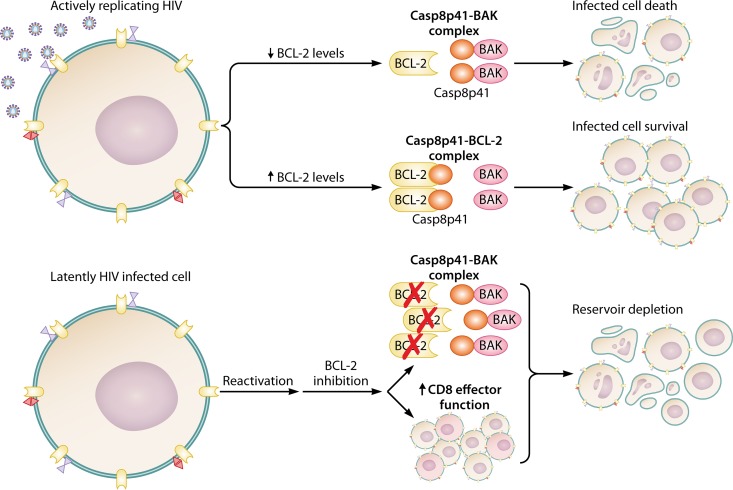FIG 4.
BCL-2 inhibition assists viral clearance in HIV infection. HIV-infected central memory T cells express higher levels of BCL-2 and possess higher BCL-2/procaspase 8 ratios than uninfected cells, giving the infected cells a survival advantage over uninfected cells and allowing for the persistence of the viral reservoir. Increased levels of BCL-2 bind Casp8p41, facilitating cell survival, whereas decreased levels of BCL-2 allow for Casp8p41 to associate with BAK and induce cell death. Treatment with the BCL-2 antagonists have demonstrated the ability to (i) selectively induce apoptosis in infected cells through a Casp8p41-mediated mechanism, (ii) reduce proviral HIV DNA and viral outgrowth, suggesting a reduced viral reservoir size, and (iii) augment HIV-infected cell killing mediated by CD8+ T cells, causing reduced proviral HIV DNA and viral outgrowth.

